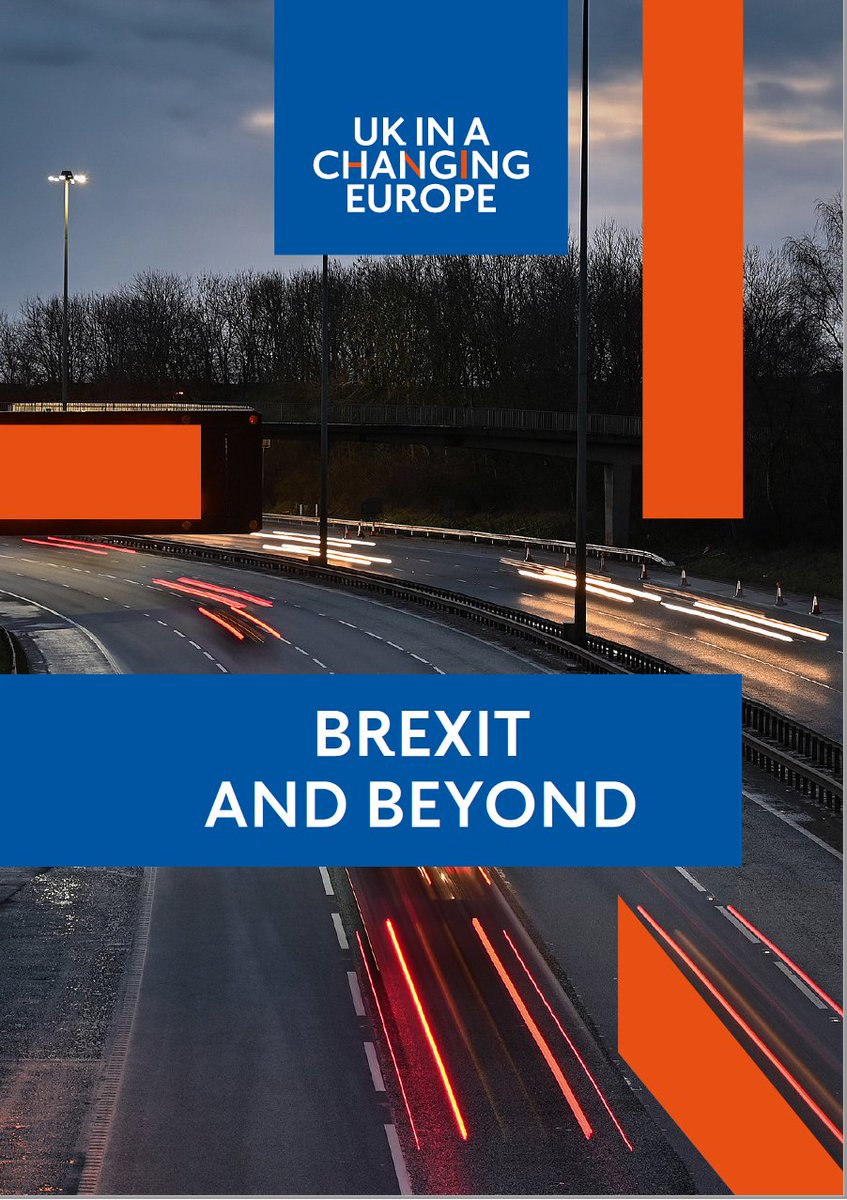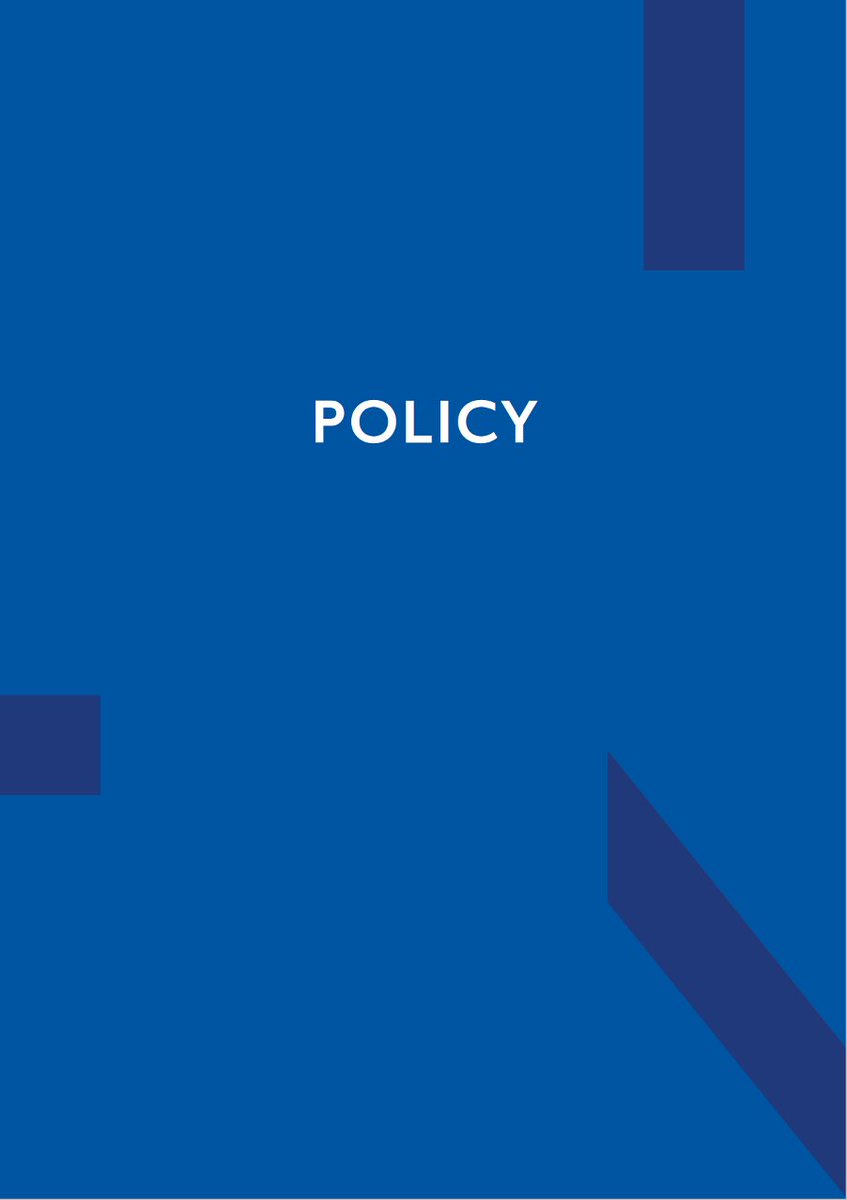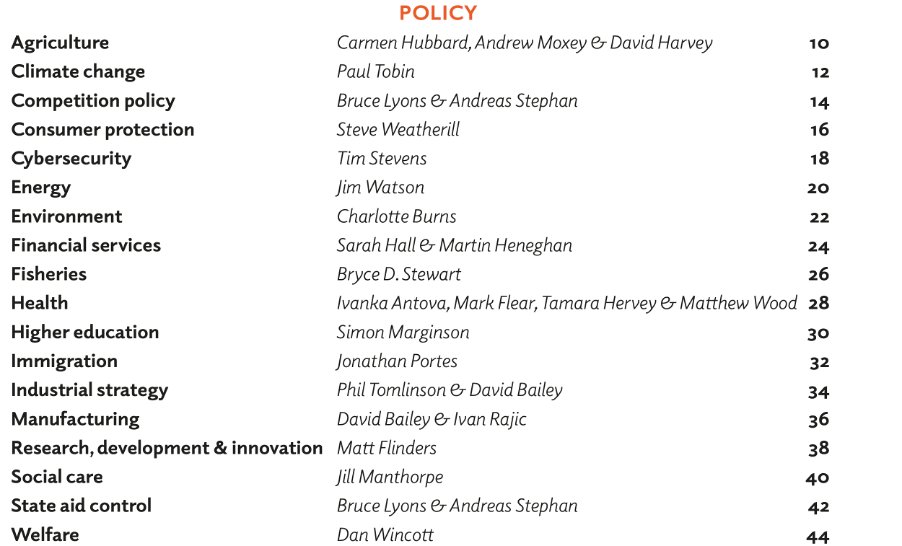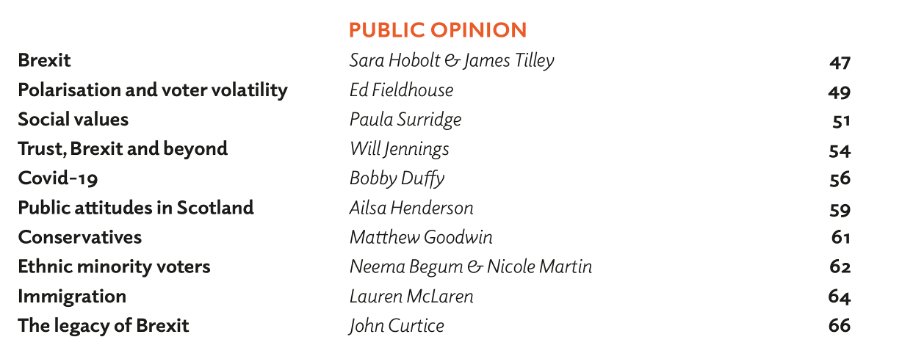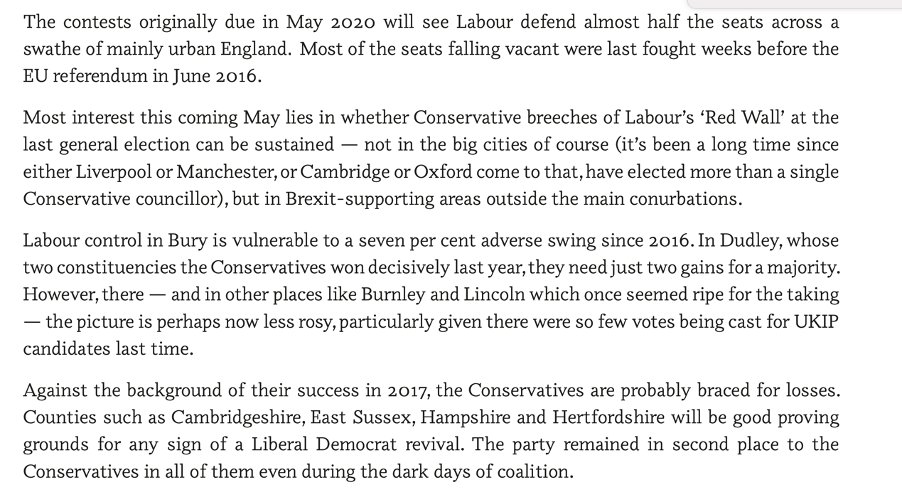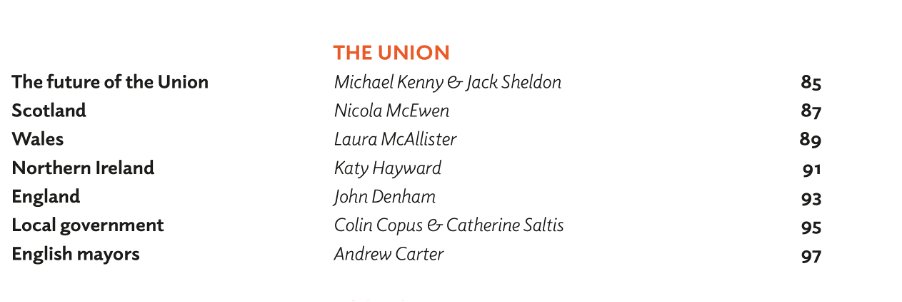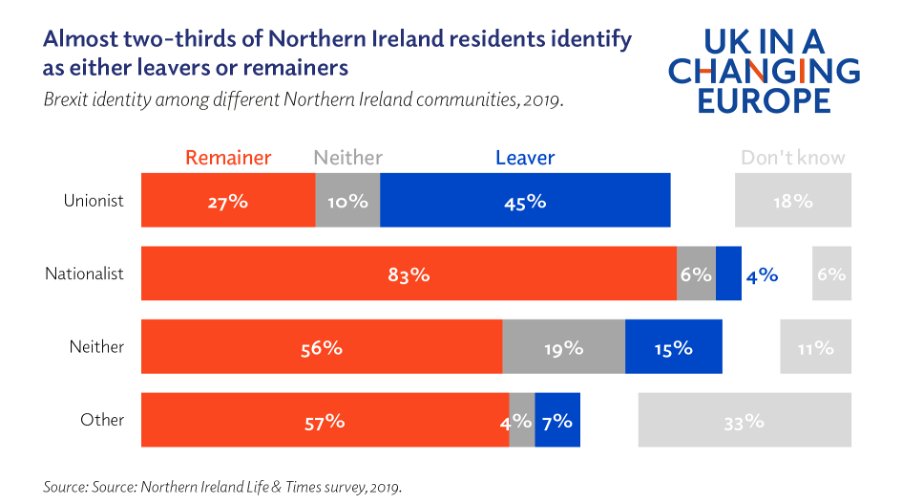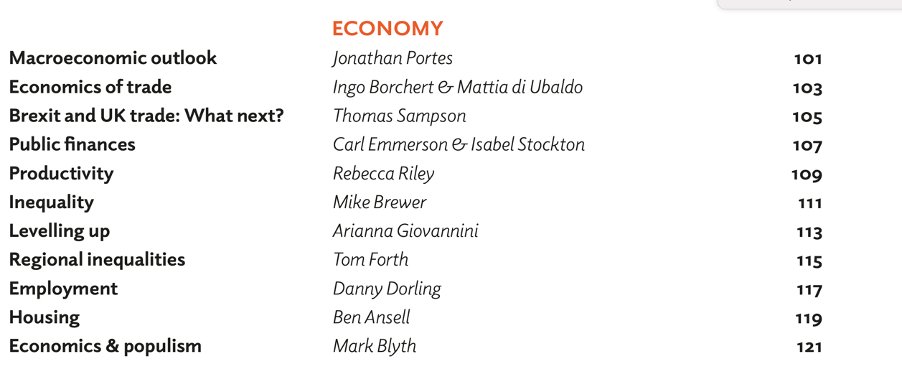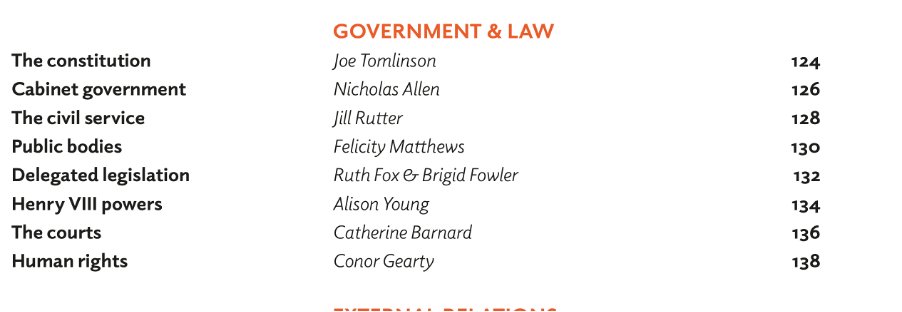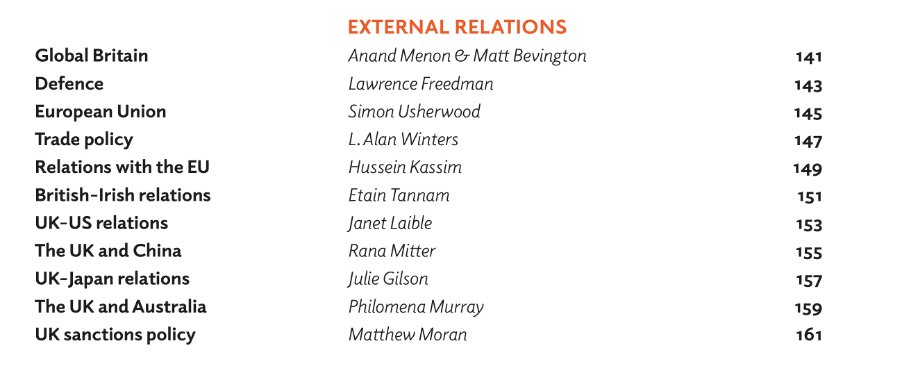A disclaimer. What follows is a selection of randomly selected highlights, nothing more nothing less. There’s far, far more in this report than I can possibly cover here. And the cricket got exciting so I ran out of steam. 2/27
It is made up of 70-odd pieces (I counted twice and came up with diff numbers) by an eye watering collection of eminent social scientists . Explaining the big issues from housing to dealing with China, from prospects for the economy to the prospects for the Labour Party 3/27
It’s intended as a guide to the key questions that will confront us over the years to come. Each contributor ponders,where we’ve come from, where we are now and where we’re headed. And because we’re really kind, we’ve divided things up into a number of sections. First: 4/ 27
And oh, my Lord do we have a stellar line up of people, including inter alia,
@_Paul_Tobin_ @tcstvns @watsonjim2 @CharlieBEU @drsarah_hall @BD_Stew @AntovaIvanka @PRT1969 @IvanRajicUK @cartelsman Download it, tell your boss your wifi has crashed, and have a read. 5/27
And then we turn our attention to 6/27
With yet another all-star line-up addressing all the issues you really want to know about, including
@sarahobolt @drjennings @GoodwinMJ and of course
@whatukthinks 7/27
Here’s a few graphic highlights, from
@BobbyDuffyKings 8/27
And our new deputy Director
@p_surridge 11/27
And
@sarahobolt and James Tilly 12/27
How strong those leave and remain identities will remain is one of the key issues when it comes to our politics which, funnily enough, is what the next section is about. 13/27
Some really cracking stuff here, including salutary thoughts from
@redhistorian 14/27
Meg Russell of
@ConUnit_UCL has some salutary words for the Prime Minister 15/27
As too does
@ProfRosieCamp 16/27
Meanwhile
@ProfTimBale and
@robfordmancs consider the challenges facing the Tories and Labour respectively, while
@michaelthrasher and Colin Rallings provide some fascinating insights into what is at stake in the local elections this year: 17/27
And, of course, the local elections are not the only ones due next year, which is a superb segue to the next section, on the Union featuring
@ProfCopusLG plus a number of people I've cunningly tagged 18/ 27
More fantastic contributions here, looking at England as well as Scotland, Northern Ireland and Wales. On Northern Ireland,
@hayward_katy provides plenty of food for thought: 19/ 27
And then we turn to the economy. This reports just keeps on getting better… (@dannydorling can't be tagged, so here's a special mention...) 20/27
First,
@jdportes ponders the macroeconomic outlook 21/27
Modelling by
@thom_sampson provides significant food for thought 22/27
And then
@isabel_stockton and Carl Emmerson ponder the state of the public finances. 23/27
And
@MikeBrewerEcon provides some fascinating insights into inequality 24/27
AND THERE’S MORE, on government and the state by the best thinkers on these issues, including
@JoePTomlinson @Brigid_Fowler @cambridgelaw @CSBarnard24 @conorgearty (Lot of lawyers here...) 25/ 27
And last but not least, there’s the world outside our borders. Where you’ll be surprise to hear that we’ve assembled an all-star cast.
I mean what more is there to say? This has been simply a snapshot of what I think is one of our best pieces of work to date. To reiterate, you can find it here:
https://t.co/S1lHP6TBJ1
